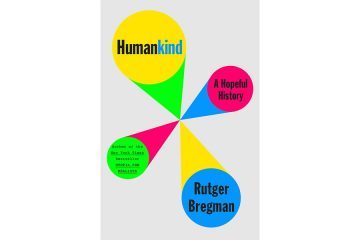Barbara Spindel in The Christian Science Monitor:
 During the coronavirus pandemic, millions of people are staying home in part to protect the most vulnerable members of their communities from COVID-19. When they do venture out, many don masks, which do less to protect them than to shield any strangers with whom they might inadvertently come into contact. Perhaps the time is ripe to consider the provocative thesis of Dutch historian Rutger Bregman’s new book, “Humankind: A Hopeful History.” His “radical idea”? That “most people, deep down, are pretty decent.” For far too long, Bregman argues, the opposite has been assumed to be true: “There is a persistent myth that by their very nature humans are selfish, aggressive and quick to panic.” Many of our institutions reflect the view of humanity articulated by 17th-century English philosopher Thomas Hobbes, who believed that without a strong ruler, human beings would revert to “a condition of war of all against all.” For his part, Bregman is more aligned with the work of Enlightenment thinker Jean-Jacques Rousseau, who regarded civilization itself as the corrupting force, introducing war, crime, and other horrors that didn’t exist when Homo sapiens lived in a “state of nature.”
During the coronavirus pandemic, millions of people are staying home in part to protect the most vulnerable members of their communities from COVID-19. When they do venture out, many don masks, which do less to protect them than to shield any strangers with whom they might inadvertently come into contact. Perhaps the time is ripe to consider the provocative thesis of Dutch historian Rutger Bregman’s new book, “Humankind: A Hopeful History.” His “radical idea”? That “most people, deep down, are pretty decent.” For far too long, Bregman argues, the opposite has been assumed to be true: “There is a persistent myth that by their very nature humans are selfish, aggressive and quick to panic.” Many of our institutions reflect the view of humanity articulated by 17th-century English philosopher Thomas Hobbes, who believed that without a strong ruler, human beings would revert to “a condition of war of all against all.” For his part, Bregman is more aligned with the work of Enlightenment thinker Jean-Jacques Rousseau, who regarded civilization itself as the corrupting force, introducing war, crime, and other horrors that didn’t exist when Homo sapiens lived in a “state of nature.”
William Golding’s classic 1954 novel “Lord of the Flies” dramatized the Hobbesian view, depicting British schoolboys who devolve into savagery after being stranded on an island. But in an impressive feat of research, Bregman unearthed a long-forgotten real-life version of “Lord of the Flies” with an entirely different outcome. In 1965, six boys from the South Pacific archipelago kingdom Tonga were shipwrecked on a remote, deserted island for 15 months. Unlike Ralph, Jack, Piggy, and their schoolmates in Golding’s novel, the children from Tonga worked together to survive until they were rescued. In their isolation, they created systems for growing food, collecting rainwater, and exercising, and they took turns tending a fire they managed to keep lit for more than a year.
More here.
